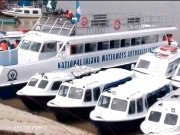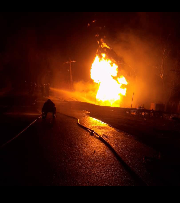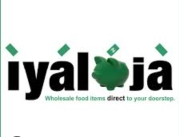
NIWA to enforce use of lifejackets, ban on night journeys
CITIZENS COMPASS—The National Inland Waterways Authority (NIWA) on Tuesday, promised to enforce the use of life jackets on the inland waterways.
The Agency will also enforce the ban on night journeys between 6p.m and 6a.m just as it promised to step up safety measures and enforcement across Nigeria’s inland waterways.
NIWA Managing Director, Mr. Bola Oyebamiji, made the announcement in Abuja, during a special press conference convened to address concerns over the recent boat mishap.
Speaking to members of the press, Mr. Oyebamiji reaffirmed the Authority’s resolve to protect lives and improve safety standards in marine transportation. He noted that since the appointment of the current management in October 2023 by President Bola Ahmed Tinubu, NIWA has implemented a number of far-reaching reforms and initiatives aimed at reducing accidents on the waterways.
The NIWA boss recalled that within the first six months of the administration, the long-awaited Water Transportation Code was gazetted and launched to regulate operators, passengers, and users of the waterways. Within the same period, the Authority also inaugurated fifteen new operational assets, including patrol boats, water ambulances, survey boats and passenger ferries, while also commissioning new facilities such as the NIWA Clinic and administrative building at its headquarters in Lokoja to improve efficiency. To enforce compliance, the Authority deployed Water Marshals, which have now increased from 80 personnel at inception to 350 across the country.
Passenger safety has been enhanced through the introduction of a manifest system at recognised jetties to improve record-keeping, while Water Marshals also ensure that the “No Lifejacket, No Boarding” regulation is strictly enforced. In addition, the reactivation of Search and Rescue Stations has reduced NIWA’s emergency response time to less than 30 minutes. The Authority has also taken its safety awareness campaigns directly to loading points and jetties, reaching more than 300 communities in 2025 alone. These grassroots engagements are complemented by periodic campaigns in local languages on radio, television, newspapers and digital platforms.
On the technical side, Mr. Oyebamiji explained that NIWA has intensified channel maintenance for safer navigation. Marine navigational buoys have been installed on the Lower and Upper Niger, while hydrographic surveys and profiling have been completed from Warri to Baro Port, covering 624 kilometres. The Authority continues to remove aquatic waste, logs and wrecks from waterways to further enhance navigability.
Collaboration with subnational governments has also been strengthened. In October 2024, NIWA convened a stakeholders’ meeting with state transportation commissioners and other maritime stakeholders in Abuja to deliberate on measures to eliminate boat accidents. That meeting produced a communique outlining responsibilities for both federal and state governments. According to the Managing Director, some states have already started acting on these commitments by providing ferries and lifejackets to their citizens, with Niger State standing out as a prime example.
Mr. Oyebamiji commended the Honourable Minister of Marine and Blue Economy, Dr. Adegboyega Oyetola, for his unwavering support. In the last four months alone, the Ministry has helped NIWA distribute over 45,000 standard lifejackets across twelve states, while also leading state-level safety campaigns in Niger and Bayelsa.
Looking ahead, NIWA intends to deepen collaboration with the Marine Police and the Nigerian Navy, especially in enforcing the ban on overloading, night sailing between 6 pm and 6 a.m, and compulsory use of lifejackets. Mr. Oyebamiji disclosed that NIWA’s initiatives have already reduced accidents and deaths on the waterways by more than 70 percent compared to previous years, but stressed that more can still be done. He reiterated the Authority’s call for the establishment of Coastal Guards for Inland Waterways, describing it as an essential enforcement tool that would significantly strengthen NIWA’s safety drive.
As part of immediate measures, NIWA has placed an outright ban on all loading activities from unauthorised points across the country, insisting that only recognised and registered jetties may be used. All commercial operators are mandated to provide lifejackets for passengers, while every boat must clearly display its name and load line. Unlicensed boats and watercraft will be removed from the waterways, while unlicensed drivers and operators are prohibited from carrying out any operations. The Authority has also called on riverine states to partner with NIWA in safety campaigns, training of operators, procurement and distribution of lifejackets, provision of landing platforms and deployment of modern ferries.
In his closing remarks, Mr. Oyebamiji described the safety of Nigerians on the waterways as a national duty requiring the collective efforts of all stakeholders. “Based on the innovations and renewed commitment to our mandates, we have reduced waterway accidents and deaths by more than 70 percent. But we must do more. Establishing Coastal Guards and deepening collaboration with states and security agencies will help us achieve an accident-free waterway system,” he said.







